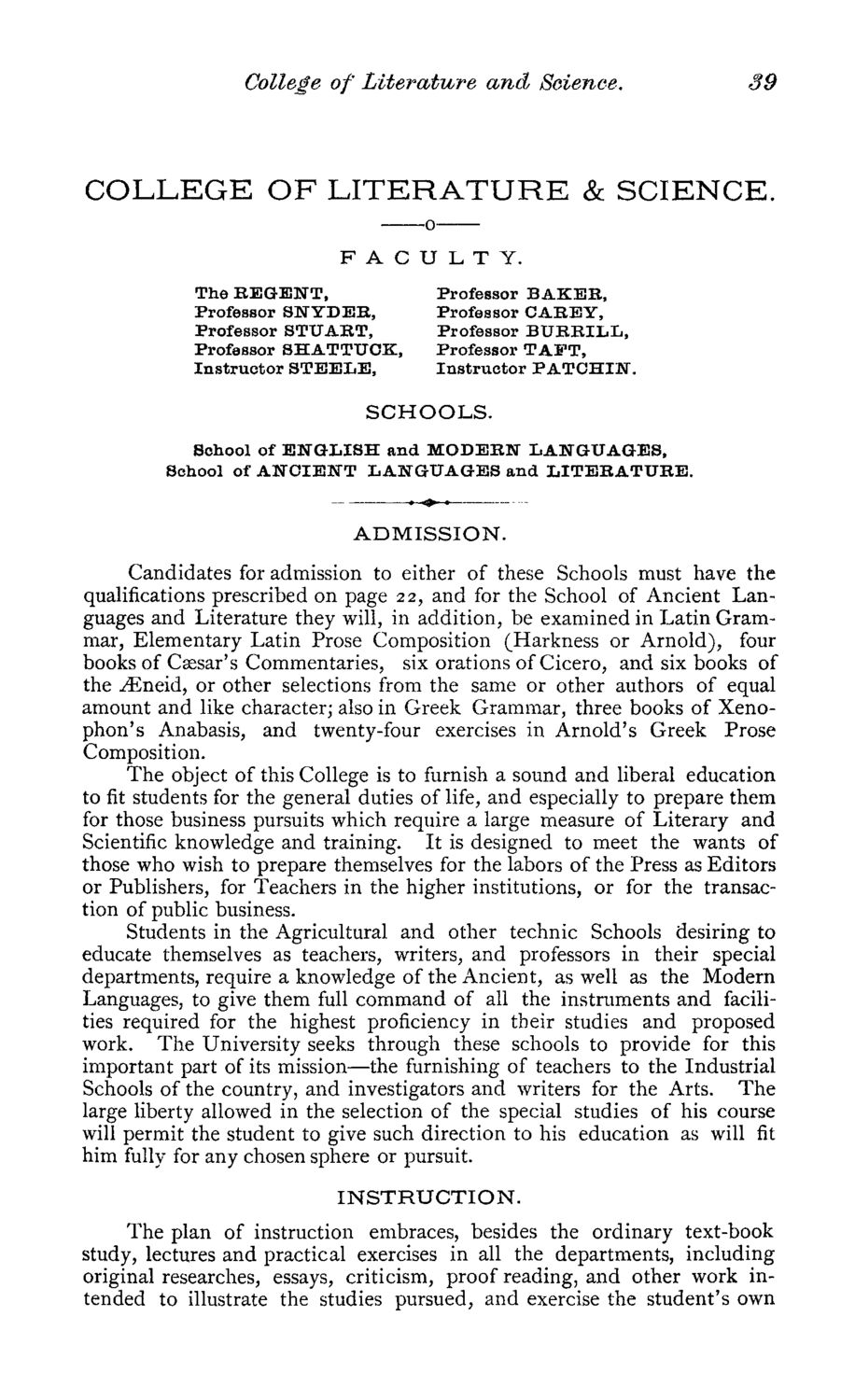| |
| |
Caption: Course Catalog - 1872-1873
This is a reduced-resolution page image for fast online browsing.

EXTRACTED TEXT FROM PAGE:
College of Literature and Science. COLLEGE OF LITERATURE & SCIENCE. F A C U L T Y . The REGENT, Professor BAKER, Professor 8FTDEE, Professor CAREY, Professor STUART, Professor BUKEILL, Professor SHATTTJOK, Professor TAFT, Instructor STEELE, Instructor PATCHIN. SCHOOLS. School of ENGLISH and MODERN LANGUAGES, School of ANCIENT LANGUAGES and LITERATURE. ADMISSION. Candidates for admission to either of these Schools must have the qualifications prescribed on page 22, and for the School of Ancient Languages and Literature they will, in addition, be examined in Latin Grammar, Elementary Latin Prose Composition (Harkness or Arnold), four books of Caesar's Commentaries, six orations of Cicero, and six books of the y£neid, or other selections from the same or other authors of equal amount and like character; also in Greek Grammar, three books of Xenophon's Anabasis, and twenty-four exercises in Arnold's Greek Prose Composition. The object of this College is to furnish a sound and liberal education to fit students for the general duties of life, and especially to prepare them for those business pursuits which require a large measure of Literary and Scientific knowledge and training. It is designed to meet the wants of those who wish to prepare themselves for the labors of the Press as Editors or Publishers, for Teachers in the higher institutions, or for the transaction of public business. Students in the Agricultural and other technic Schools desiring to educate themselves as teachers, writers, and professors in their special departments, require a knowledge of the Ancient, as well as the Modern Languages, to give them full command of all the instruments and facilities required for the highest proficiency in their studies and proposed work. The University seeks through these schools to provide for this important part of its mission—the furnishing of teachers to the Industrial Schools of the country, and investigators and writers for the Arts. The large liberty allowed in the selection of the special studies of his course will permit the student to give such direction to his education as will fit him fully for any chosen sphere or pursuit. INSTRUCTION. The plan of instruction embraces, besides the ordinary text-book study, lectures and practical exercises in all the departments, including original researches, essays, criticism, proof reading, and other work intended to illustrate the studies pursued, and exercise the student's own
| |